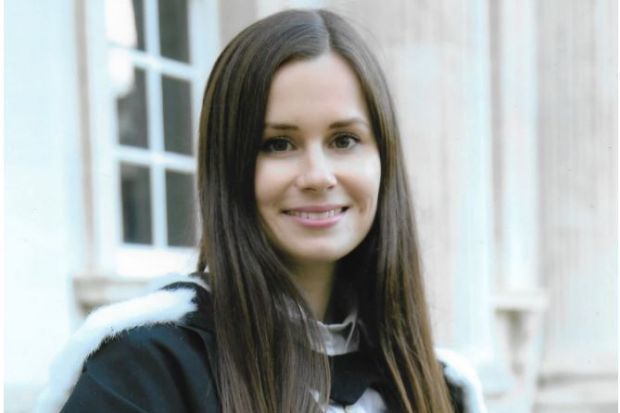The University of Melbourne has issued a rare public statement about a young academic who has been imprisoned in Iran for almost two years, amid growing concern that a strategy of quiet diplomacy to secure her release is not working.
Islamic studies lecturer Kylie Moore-Gilbert was arrested in September 2018, reportedly after taking an intensive course on Shia Islam studies in the holy city of Qom, and has since been sentenced to 10 years in jail for espionage.
She has denied all allegations against her and the Australian government rejects them as baseless and politically motivated.
It has now emerged that Dr Moore-Gilbert has been moved from Tehran’s Evin Prison, known as a detention centre for foreign political prisoners, to Qarchak women’s prison south of the capital. Qarchak is notorious for its crowded conditions and lack of hygiene, nutritious food or medical care, while inmates have reportedly been infected with Covid-19.
“The news that Dr Moore-Gilbert has been moved from Evin to Qarchak Prison is worrying and deeply distressing to her family, friends and her university colleagues,” said Melbourne vice-chancellor Duncan Maskell.
He said that the university was in close contact with Dr Moore-Gilbert’s family and the Department of Foreign Affairs and Trade. Dr Moore-Gilbert has had telephone contact with her family and consular officials in recent months, he added, and the university “hopes that will continue”.
While colleagues expressed shock when news of Dr Moore-Gilbert’s arrest emerged last year, few were prepared to comment openly for fear of exacerbating the academic’s plight.
But Jessie Moritz, a lecturer in Middle East studies at the Australian National University, said that the time for silence had passed because “Australia’s quiet diplomatic approach is not working”.
Writing in The Conversation, Dr Moritz describes the detained academic as a colleague and friend. “For the past two years, I have been keeping silent in the hopes a quiet diplomatic approach would secure her freedom. But it is hard to overstate how horrific this week’s development is,” she writes. “Australia needs to do more.”
Dr Moritz says that Australian authorities must “think outside the box” to secure Dr Moore-Gilbert’s release. One option was a prisoner swap – a strategy thought to have secured the freedom of two other Australians detained in Evin last October.
On the day that news of their release surfaced, it emerged that an Iranian student at the University of Queensland – who had been detained over accusations that he had sent home American equipment for detecting stealth planes or missiles – had flown back to Tehran, thus avoiding extradition to the US.
Dr Moritz says that there is also precedent for foreign detainees to be transferred to house arrest in embassies while their cases were resolved. “Even though the situation is sensitive, there are avenues Australia can pursue on behalf of Kylie,” she says.
The Melbourne academic’s ordeal has highlighted the risks of field study in places such as Iran. “Kylie’s case…fits a wider pattern where the space for academic research is being narrowed in authoritarian states,” Dr Moritz writes.
“This is occurring not just in Iran but in countries such as China, the United Arab Emirates and Saudi Arabia. If this research cannot be conducted, or if the Australian government fails to protect its researchers who need to do fieldwork in these countries, this allows authoritarian states to silence criticism.”
Register to continue
Why register?
- Registration is free and only takes a moment
- Once registered, you can read 3 articles a month
- Sign up for our newsletter
Subscribe
Or subscribe for unlimited access to:
- Unlimited access to news, views, insights & reviews
- Digital editions
- Digital access to THE’s university and college rankings analysis
Already registered or a current subscriber? Login










